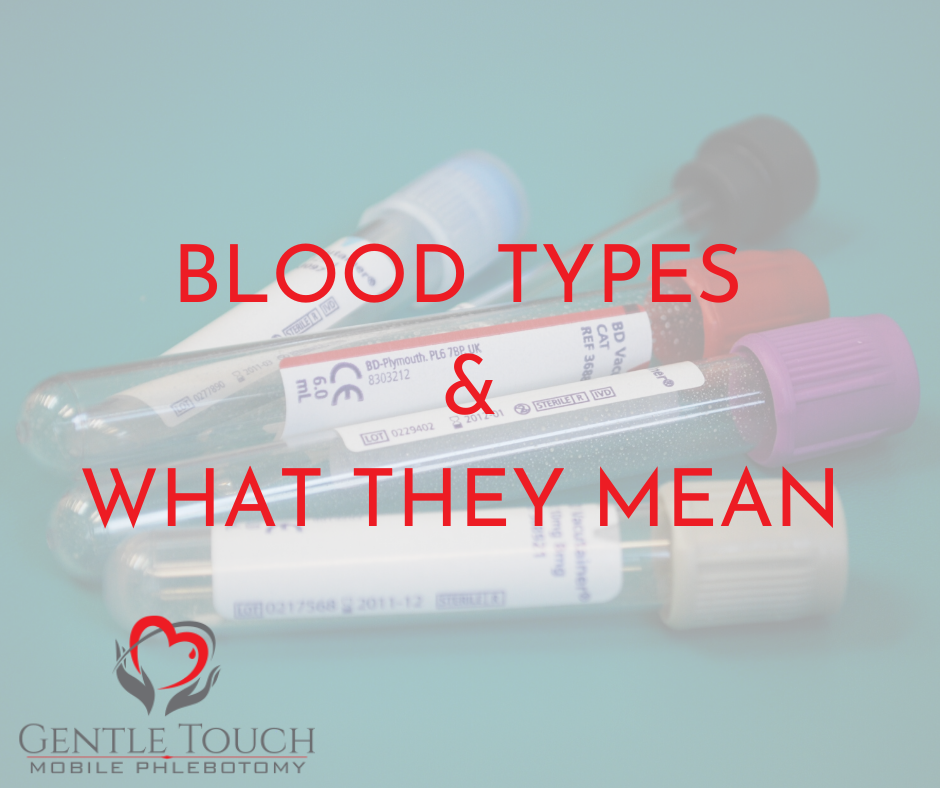Blood may make some people squeamish, but it’s actually quite interesting! Humans carry a certain blood type, which is dependent on which genes they inherited from their parents, much like their eye color. In this article, we will be explaining what makes a blood type, the characteristics of each, and their donor capabilities.
To begin, let’s cover the basics. There are four main components of blood, which are:
- red blood cells: carry oxygen around the body
- white blood cells: play a crucial role in the immune system
- Plasma: a yellowish liquid that contains proteins and salts
- Platelets: enable clotting
Human blood is grouped into four types: A, B, AB, and O. Each blood group is determined by the presence or absence of two antigens (proteins), A and B, on the surface of red blood cells. In addition to the A and B antigens, there is a protein called the Rh factor, which can be either present (+) or absent (–). These two factors combined create the 8 most common blood types: A+, A-, B+, B-, O+, O-, AB+, AB-.
BLOOD TYPES:
Type A: The surface of the red blood cells contains A antigen, and the plasma has anti-B antibody. Anti-B antibody would attack blood cells that contain B antigen. Type A blood can receive blood transfers and donate to blood types A and AB.
Type B: The surface of the red blood cells contains B antigen, and the plasma has anti-A antibody. Anti-A antibody would attack blood cells that contain A antigen. Type B blood can receive blood transfers and donate to blood types B and AB.
Type AB: The red blood cells have both A and B antigens, but the plasma does not contain anti-A or anti-B antibodies. Individuals with type AB can receive any ABO blood type. Type AB blood can only receive and donate blood to AB blood type.
Type O: The plasma contains both anti-A and anti-B antibodies, but the surface of the red blood cells does not contain any A or B antigens. Since these antigens are not present, a person with any ABO blood type can receive this type of blood. Type O is the universal blood donor, so it can donate to all the blood types; however, it can only receive type O.
Donating Blood
As listed above, the various blood types are able to donate and receive blood transfusion from each other. A blood transfusion is the transfer of blood from one person to another. Every 2 seconds, a person in the United States needs blood.
When a person needs a transfusion, it is crucial doctors know which type the patient is in order to give them their compatible type. As a result, receiving the wrong blood type can trigger an adverse reaction, such as blood clots, making it a life-threatening situation.
In addition, antigens have a characteristic that can trigger an immune response if there is something foreign to the body. Since some antigens can trigger a patient’s immune system to attack transfused blood, safe blood transfusions depend on careful blood typing and cross-matching.
Donor blood is tested for HIV, hepatitis, syphilis, West Nile virus and other diseases before transfusion. According to the Centers for Disease Control, there are more than 9.5 million blood donors in the United States and an estimated 5 million patients who receive blood annually, resulting in a total of 14.6 million transfusions per year.
People with Type O negative blood are considered to be universal donors because they can donate to people of any blood type. Individuals with Type AB+ blood are considered the universal recipients because people with that type can receive any blood type.
QUICK FACTS:
- Blood type is inherited, just like eye color.
- Certain blood types are more common in certain countries. In China, over 99 percent of the population has Rh+ blood.
- Different kinds of animals have different kinds of blood. Dogs have 4 blood types; cats have 11; cows have about 800.
- Some people think blood type tells about personality. Legend has it that Type A is calm and trustworthy; Type B is creative and excitable; Type AB is thoughtful and emotional; and Type O is a confident leader.
- In Japan, the idea of blood type as personality type is so popular that Japanese ask “What’s your blood type?” about as often as Americans ask “What’s your sign?”

